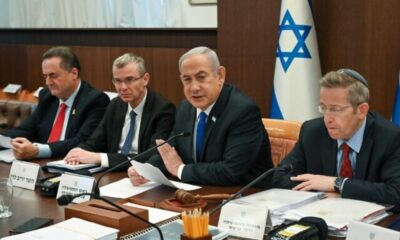Business
World Banks says Afghanistan’s economy adjusting to new realities
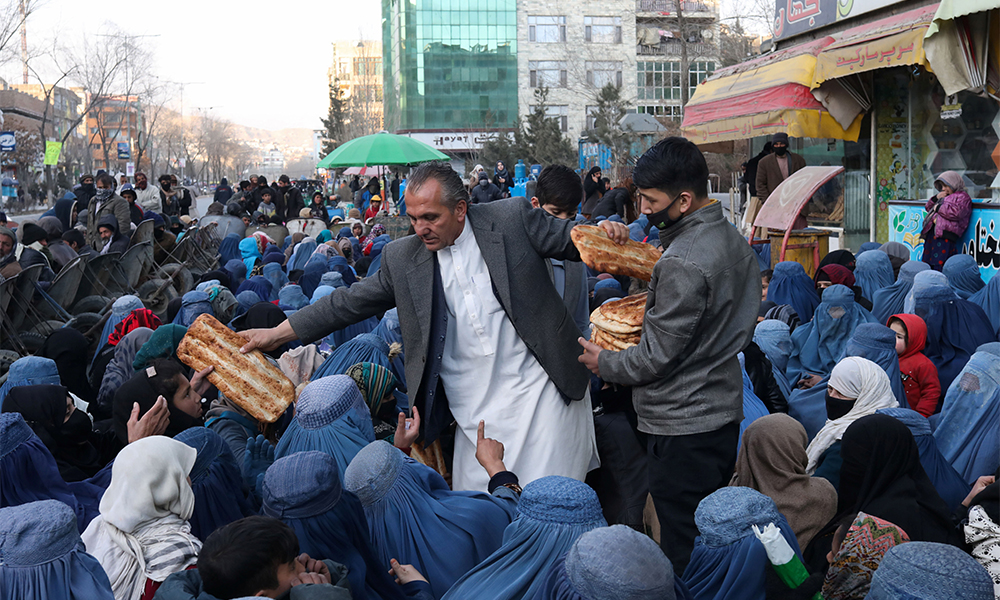
The World Bank said in it’s latest Afghanistan Development Update report that the country’s economy is adjusting to a “new normal” following the collapse of the former government and take over by the Islamic Emirate of Afghanistan (IEA).
According to the report, a sharp decline in public spending, lower household incomes, and reduced consumption caused aggregate demand to fall, while disruptions in the payment system and supply constraints further hampered private sector activities, initially forcing many businesses to close or scale down their operations.
The report noted that preliminary statistics on the gross domestic product (GDP) show that the economy contracted by about 20 percent in 2021.
However, the resumption of off-budget international support for humanitarian needs and basic services helped mitigate some of the negative impacts over the past year.
The report concludes that Afghanistan’s economy is now much smaller than before after contracting significantly. The economy has now reached a point where it is likely to plateau.
The World Bank stated that while inflation remains high, some indicators have improved: exports have increased, exchange-rate volatility has reduced, and domestic revenue collection is relatively healthy.
In addition, private businesses are adjusting to the new operating environment.
“While there are signs of economic stabilization and resilience of Afghan businesses, the country continues to face enormous social and economic challenges that are impacting heavily on the welfare of the Afghan people, especially women, girls, and minorities,” said Melinda Good, World Bank Country Director for Afghanistan.
“Living conditions showed slight improvements in the past few months, but deprivation remains very high across the country, and persistent inflation might further erode any welfare gains,” she added.
The report projects that the real GDP in 2022 will contract further, with an accumulated contraction of close to 30-35 percent between 2021 and 2022.
“A range of economic and political scenarios is possible for Afghanistan’s future. While all scenarios depend on continued off-budget aid from the international community, a more upside and sustainable trajectory requires actions by the interim Taliban (IEA) administration to unlock much-needed economic integration and domestic opportunities for the private sector to create jobs for the Afghan people,” added Good.
Business
Uzbekistan approves feasibility study agreement for Trans-Afghan Railway
The agreement builds on a tripartite document signed on July 17, 2025, which outlined cooperation on preparing a feasibility study for the Termez–Kharlachi railway corridor.
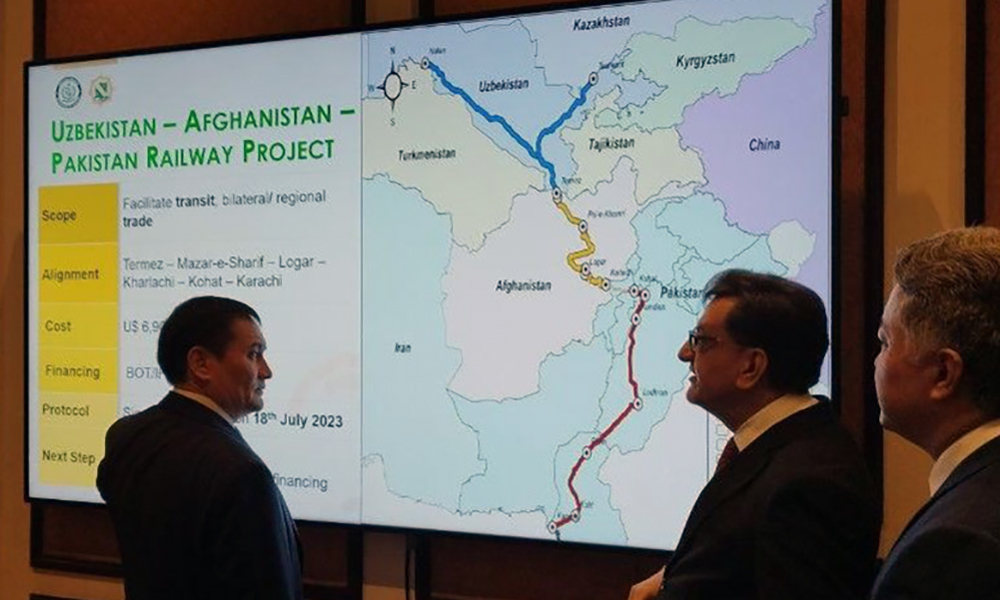
Uzbekistan has ratified an international agreement to prepare a feasibility study for the Naybabad–Kharlachi section of the Trans-Afghan Railway, formalizing its participation in the project.
President Shavkat Mirziyoyev signed a decree on February 4 approving the agreement.
The framework agreement involves the transport ministries of Uzbekistan, Afghanistan and Pakistan and provides for joint work on a feasibility study for the proposed railway line between Naybabad and Kharlachi. The section forms part of the wider Trans-Afghan Railway project aimed at strengthening transport links between Central and South Asia.
Under the decree, Uzbekistan’s Ministry of Transport has been designated as the competent authority responsible for implementing the agreement. The Ministry of Foreign Affairs has been tasked with notifying Kabul and Islamabad that Uzbekistan has completed the internal procedures required for the agreement to enter into force.
The agreement builds on a tripartite document signed on July 17, 2025, which outlined cooperation on preparing a feasibility study for the Termez–Kharlachi railway corridor.
The planned route is expected to run through Termez, Naybabad, Maidanshahr, Logar and Kharlachi, providing a transit corridor through Afghanistan.
The feasibility study will be commissioned by the Tripartite Project Office for the Development Strategy of International Transport Corridors under Uzbekistan Railways.
Established in Tashkent in May 2023, the office also operates branches in Kabul and Islamabad to coordinate the project.
First proposed in 2018, the Trans-Afghan Railway was initially projected to carry up to 20 million tons of cargo annually at a cost of about $5 billion. Cost estimates have since been revised.
In July 2022, Uzbekistan Railways cited an estimate of $4.6 billion with a construction period of up to five years, while Pakistan’s Ministry of Railways put the cost at $8.2 billion in December 2024.
More recent assessments have placed the overall cost at around $7 billion, with a public-private partnership under a Build-Operate-Transfer model among the options under consideration.
Business
Afghanistan seeks expanded ties with Russia in energy, mining and infrastructure
TASS reported that Kabul is also prepared to cooperate with Moscow in the extraction of mineral resources.

Afghanistan has expressed strong interest in broadening trade and economic cooperation with Russia, with a particular focus on energy, mining and infrastructure projects, according to Russia’s TASS news agency.
In an interview with TASS, Afghanistan’s Ambassador to Moscow, Gul Hassan, said Kabul is keen to import oil and gas from Russia as part of efforts to deepen bilateral economic ties.
He noted that trade relations between the two countries are progressing and that, if key obstacles—especially banking restrictions—are addressed, Afghanistan could also import medicines, industrial goods, grain, vegetable oils and other commodities from Russia.
In return, the ambassador said Afghanistan is ready to export fresh and dried fruits, vegetables, medicinal plants, carpets and mineral resources to the Russian market, adding that expanding export-import operations could significantly increase bilateral trade volumes.
He also revealed plans to open an exhibition of Afghan products in Moscow, which he said would help boost trade turnover.
TASS reported that Kabul is also prepared to cooperate with Moscow in the extraction of mineral resources.
Hassan described the economy as a central pillar of Afghanistan’s foreign policy, emphasizing the government’s goal of positioning the country as a key link in regional economic integration and attracting foreign investment.
He noted that Russian companies have long shown interest in Afghanistan’s industrial, mining and infrastructure sectors.
The ambassador further told TASS that Russian firms are already in talks with relevant Afghan authorities on the construction of small hydroelectric power plants.
Representatives of several Russian companies have reportedly visited Afghanistan and held meetings with officials and technical experts.
According to Hassan, practical steps toward cooperation in the energy and power generation sectors are expected in the near future, pointing to a potential new phase in Afghan-Russian economic relations.
Business
Pakistan, China plan to extend CPEC to Afghanistan, revive trilateral framework
The proposed CPEC expansion into Afghanistan is seen as a move to enhance regional economic integration amid shifting geopolitical dynamics.
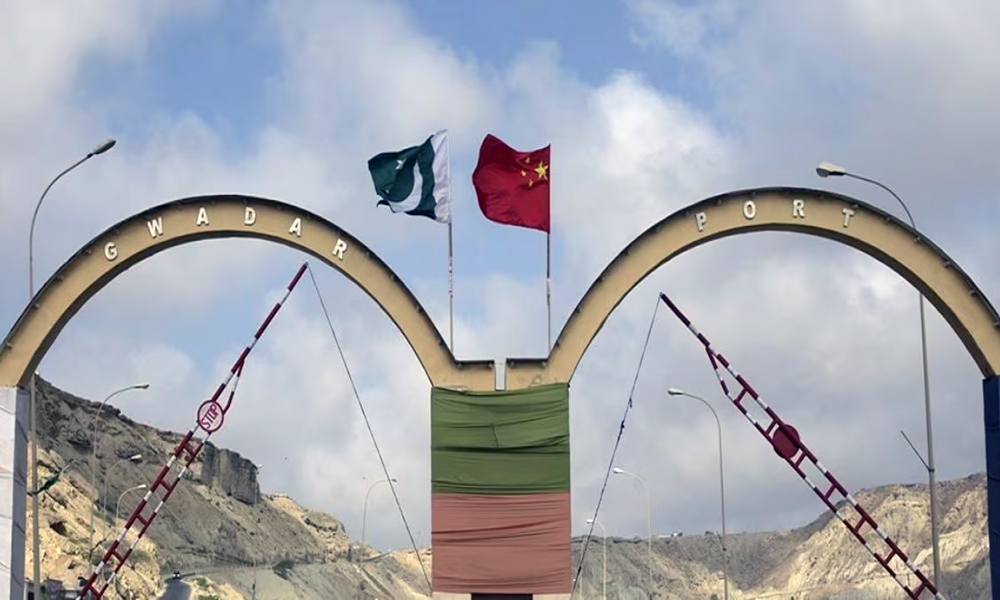
Pakistan and China are moving forward with plans to extend the China-Pakistan Economic Corridor (CPEC) into Afghanistan, a strategic step aimed at bolstering regional connectivity and economic cooperation. The expansion, along with the revival of the Pakistan-China-Afghanistan trilateral framework, was discussed in a recent briefing to the Pakistani Senate Standing Committee on Foreign Affairs.
According to Pakistan Today, officials from Pakistan’s Ministry of Foreign Affairs outlined the details during a session in Islamabad, where they reviewed key aspects of Pakistan’s foreign relations, regional developments, and economic diplomacy.
Officials emphasized that Pakistan’s relationship with China remains strong, underscoring the “all-weather” strategic partnership between the two nations. Strengthening ties with Beijing, they stated, continues to be a cornerstone of Pakistan’s foreign policy. This includes unwavering support for China’s position on regional and international issues, particularly the One-China policy and matters related to territorial integrity.
The briefing also touched upon China’s consistent backing of Pakistan in various areas, including sovereignty, economic stability, counter-terrorism, and support for Pakistan’s exit from the Financial Action Task Force (FATF) grey list.
The Kashmir issue was also addressed, with officials noting that China considers it an unresolved matter and advocates for a peaceful resolution in line with UN Security Council resolutions.
The proposed CPEC expansion into Afghanistan is seen as a move to enhance regional economic integration amid shifting geopolitical dynamics. Officials stated that reviving the trilateral framework is part of broader efforts to foster greater cooperation and connectivity in the region, with an eye on long-term stability and prosperity.
The move also reflects both countries’ desire to further integrate Afghanistan into the regional economic landscape, a key element in fostering peace and development.
-

 Latest News3 days ago
Latest News3 days agoAfghanistan to grant one- to ten-year residency to foreign investors
-

 Sport4 days ago
Sport4 days agoIndonesia shock Japan to reach historic AFC Futsal Asian Cup final
-

 Sport3 days ago
Sport3 days agoIran clinch AFC Futsal Asian Cup 2026 in penalty shootout thriller
-

 Latest News3 days ago
Latest News3 days agoAfghanistan says Pakistan is shifting blame for its own security failures
-

 International Sports2 days ago
International Sports2 days agoWinter Olympics gain momentum as medal table takes shape
-

 Latest News5 days ago
Latest News5 days agoAfghanistan facing deepening hunger crisis after US Aid Cuts: NYT reports
-
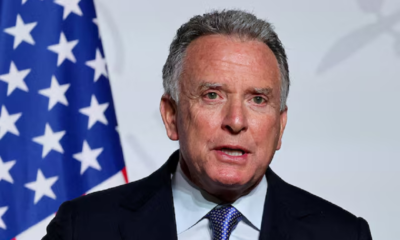
 World5 days ago
World5 days agoUS, Ukraine, Russia delegations agree to exchange 314 prisoners, says Witkoff
-

 Latest News3 days ago
Latest News3 days agoTraffic police receive new cars












